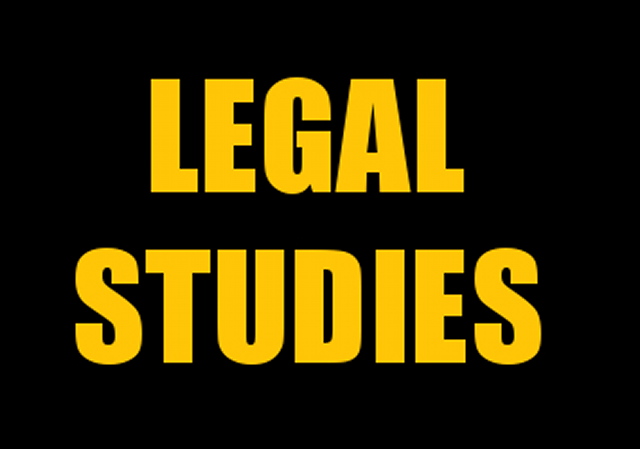Can the American Bar Association Save Free Speech at Law Schools?
“would require law schools to adopt policies protecting the free-speech rights of faculty, staff, and students”

The ABA controls law school accreditation, which gives it a tremendous amount of power which they can use for good.
Mark Pulliam writes at the James G. Martin Center:
The American Bar Association’s Coming Free-Speech Intervention
Higher education did not have a good year in 2023, as evidenced by high-profile resignations at Penn (Liz Magill) and Harvard (Claudine Gay). This followed abysmal televised congressional testimony in which the two Ivy League presidents and MIT’s Sally Kornbluth refused to condemn campus calls for genocide against Jews. Harvard’s disgrace was compounded by revelations of serial plagiarism on the part of Gay.
The legal academy has fared no better in recent years, with highly publicized incidents of intolerance, de facto censorship, and speech suppression at Stanford Law (e.g., students heckling Fifth Circuit judge Kyle Duncan), Yale Law (e.g., disruption by students of an event featuring Alliance Defending Freedom general counsel Kristen Waggoner and administration harassment of a Federalist Society member for promoting a Constitution Day event), Georgetown Law (e.g., the suspension of lecturer Ilya Shapiro for a tweet criticizing President Biden’s selection of Ketanji Brown Jackson to serve on the U.S. Supreme Court), and Penn Law (e.g., disciplining tenured faculty member Amy Wax for making unpopular statements)…
To its credit, the American Bar Association, responsible for accrediting the nation’s law schools for purposes of eligibility for federal student loans and graduates’ bar admission, is considering a proposal (sponsored by the ABA’s Council of the Section of Legal Education and Admissions to the Bar) that would require law schools to adopt policies protecting the free-speech rights of faculty, staff, and students. It would also prohibit disruptive conduct interfering with free expression (such as the “heckler’s veto”) and provide for due process for those accused of violating the policy.
The ABA’s accreditation rules carry great weight, because law schools that do not comply face the loss of their accreditation—in effect, capital punishment. Law schools cannot ignore the ABA when accreditation is at stake, and the ABA knows it.
This proposal, which has been endorsed by free-speech advocate and well-known legal scholar Erwin Chemerinsky, dean of the UC Berkeley Law School and past president of the influential Association of American Law Schools, will be considered by the ABA’s House of Delegates at its February 5 meeting in Louisville. If approved by the House of Delegates, the ABA’s proposed Standard 208 would create a new requirement for law schools (both public and private) entitled “Academic Freedom and Freedom of Expression.” Amazingly, outside of the faculty-tenure context, there is no existing ABA standard on this topic.
 DONATE
DONATE
Donations tax deductible
to the full extent allowed by law.









Comments
The ABA is part of the problem–they have been pushing a leftist agenda for years
Does the ABA receive funding from Qatar
Free speech doesn’t exist anymore, certainly not on college campus. Good luck to musk and X, hope he can change culture.
Huh? Don’t I remember quite clearly (including from articles right here on LI) that the ABA is an eager participant in the national wokeness movment?
Back in the 90’s the ABA made it clear they no longer wanted members who believed in any restrictions on abortion.
A major source of ABA funding is voluntary dues paid by many thousands of individual lawyers, including law professors and judges.